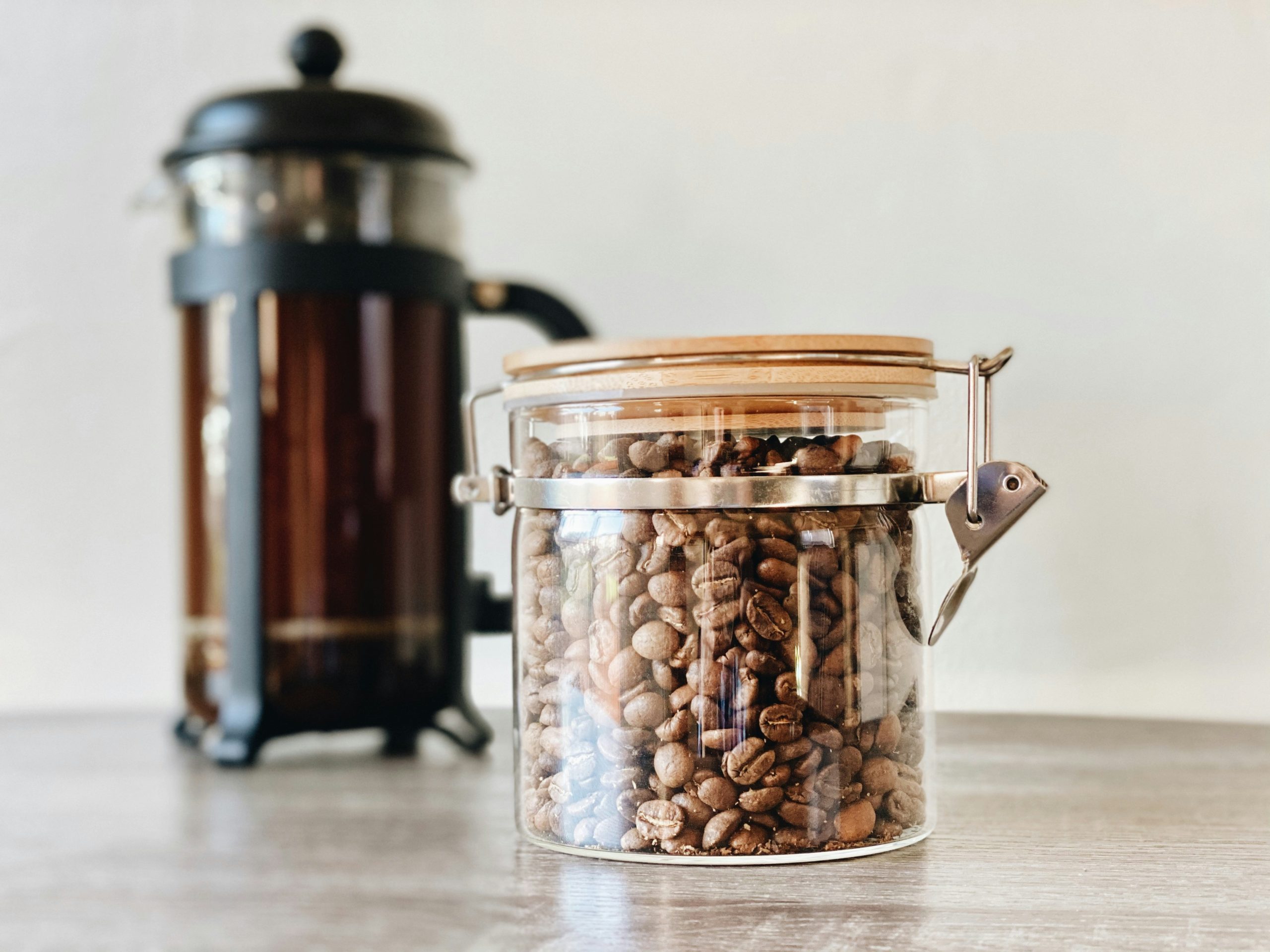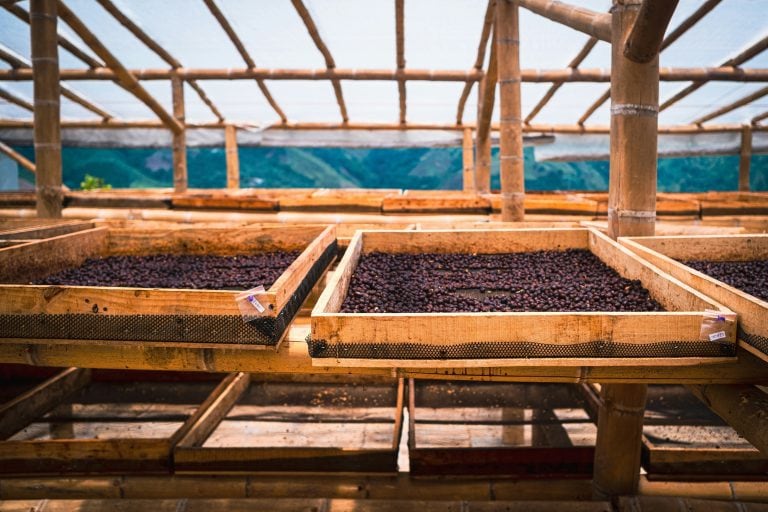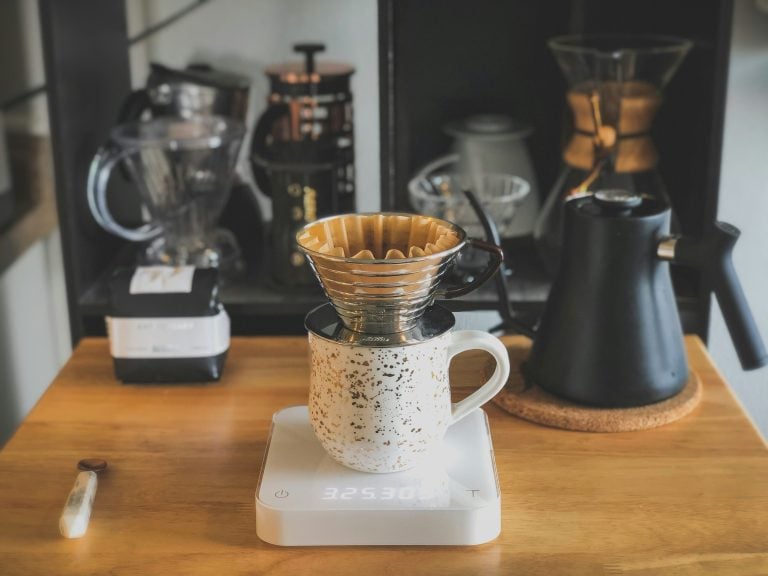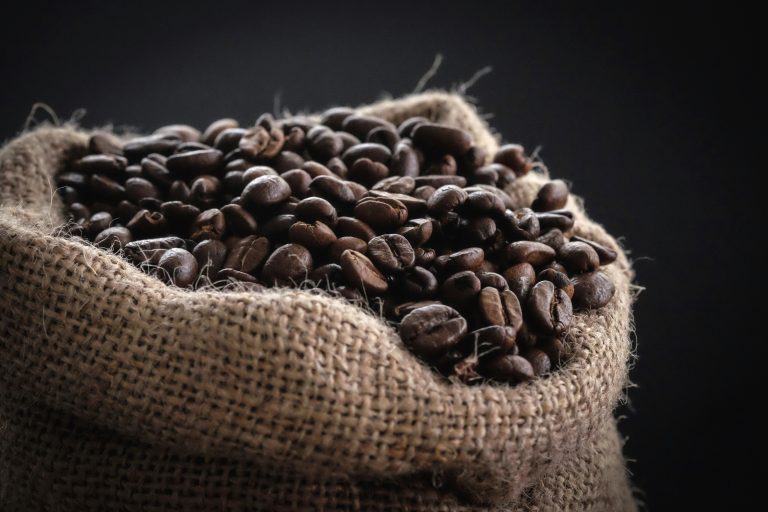Free Shipping on all U.S. orders $50+
How Long Do Roasted Coffee Beans Stay Fresh? The Complete Guide to Coffee Bean Storage

Coffee lovers know that freshness makes all the difference between an exceptional cup and a disappointing one. But exactly how long do roasted coffee beans stay fresh, and what factors affect their shelf life? This comprehensive guide covers everything you need to know about coffee bean freshness, storage methods, and signs of stale coffee.
Quick Answer: Coffee Bean Freshness Timeline
Roasted coffee beans stay fresh for 2-4 weeks after the roast date when stored properly. However, the timeline varies based on several factors:
- Peak freshness: 3-14 days after roasting
- Good quality: 2-4 weeks after roasting
- Acceptable quality: 1-2 months after roasting
- Past prime: 3+ months after roasting
Understanding Coffee Bean Freshness
Coffee beans are at their peak flavor within the first two weeks after roasting. During the roasting process, coffee beans undergo chemical changes that create the flavors and aromas we love. However, these same compounds begin to degrade immediately after roasting due to exposure to oxygen, light, heat, and moisture.
The Science Behind Coffee Staling
When coffee beans are roasted, they release carbon dioxide and develop oils that contain flavor compounds. Over time, these oils become rancid, and the volatile aromatic compounds escape, resulting in flat, stale-tasting coffee. This process, called oxidation, is the primary enemy of coffee freshness.
Factors That Affect Coffee Bean Freshness
1. Roast Date vs. Expiration Date
Many coffee packages show an expiration date that can be months or even years in the future. However, the roast date is far more important for determining freshness. Always look for coffee with a clearly marked roast date, preferably within the last 2-4 weeks.
2. Roast Level
The roast level significantly impacts how long coffee stays fresh:
- Light roasts: Stay fresh longer (3-4 weeks) due to lower oil content
- Medium roasts: Good for 2-3 weeks after roasting
- Dark roasts: Shortest freshness window (1-2 weeks) due to high oil content
3. Bean Type and Origin
Single-origin beans often have more delicate flavor profiles that fade faster than blends. Additionally, some coffee varieties naturally have longer-lasting flavors than others.
4. Processing Method
The way coffee is processed affects its shelf life:
- Washed coffees: Tend to stay fresh longer
- Natural/dry-processed: May have shorter freshness windows due to higher fruit content
Proper Coffee Bean Storage Methods
The Four Enemies of Coffee Freshness
To maximize coffee bean freshness, protect them from:
- Air (Oxygen): The primary cause of staling
- Light: Breaks down flavor compounds
- Heat: Accelerates chemical reactions
- Moisture: Causes mold and accelerates staling
Best Storage Practices
Airtight Containers: Store beans in airtight containers with one-way valves that allow CO2 to escape while preventing oxygen from entering.
Cool, Dark Places: Keep coffee in a cool, dark pantry or cabinet away from heat sources like stoves or direct sunlight.
Room Temperature: Contrary to popular belief, don’t store coffee in the refrigerator or freezer for daily use, as temperature fluctuations cause condensation.
Original Packaging: If the coffee comes in a bag with a one-way valve, you can keep it in the original packaging, but ensure it’s properly sealed.
Storage Container Recommendations
- Vacuum-sealed canisters: Best for removing air
- Ceramic or glass containers: Good for blocking light
- Stainless steel containers: Durable and lightproof
- Avoid plastic: Can absorb odors and isn’t completely airtight
Signs Your Coffee Beans Are No Longer Fresh
Visual Indicators
- Oily appearance: Excessive oil on the surface (especially for light-medium roasts)
- Dull color: Beans lose their vibrant appearance
- Visible mold: White or green spots indicate spoilage
Aroma Changes
- Weak smell: Fresh coffee should have a strong, pleasant aroma
- Rancid odor: Sour or unpleasant smells indicate the oils have gone bad
- No aroma: Complete lack of smell means the beans are very stale
Taste Differences
- Flat flavor: Lack of brightness or complexity
- Bitter or sour notes: Off-flavors from degraded compounds
- Lack of acidity: Missing the bright, lively notes
Extending Coffee Bean Freshness
Buy in Smaller Quantities
Purchase only what you’ll consume within 2-4 weeks. While buying in bulk may seem economical, you’ll sacrifice quality for older beans.
Grind Just Before Brewing
Whole beans stay fresh much longer than ground coffee. Grind only what you need for each brewing session, as ground coffee loses freshness within hours.
Choose Local Roasters
Local coffee roasters often provide fresher beans with clear roast dates. Plus, you can often ask about the roasting schedule to get beans within days of roasting.
Consider Freezing for Long-term Storage
If you must store coffee for longer periods, freezing can help preserve freshness:
- Divide beans into weekly portions
- Use airtight, freezer-safe containers
- Thaw completely before opening to prevent condensation
- Never refreeze once thawed
Different Coffee Forms and Their Freshness
Whole Bean Coffee
- Freshness window: 2-4 weeks
- Best practice: Grind just before brewing
- Storage: Airtight container at room temperature
Ground Coffee
- Freshness window: 1-2 weeks (degrades much faster)
- Best practice: Use within days of grinding
- Storage: Sealed container, consume quickly
Coffee Pods and Capsules
- Freshness window: 6-12 months (sealed environment)
- Best practice: Check manufacturing dates
- Storage: Original packaging until use
Brewing Tips for Maximum Freshness
Water Quality Matters
Use filtered water to avoid off-flavors that can mask or interfere with your coffee’s natural taste profile.
Proper Ratios
Use the right coffee-to-water ratio (typically 1:15 to 1:17) to ensure optimal extraction and flavor.
Brewing Temperature
Water temperature should be between 195-205°F (90-96°C) for optimal extraction without over-extraction.
Brewing Time
Different brewing methods require different extraction times. Over-extraction can make even fresh coffee taste bitter.
Economic Considerations
Cost of Fresh vs. Stale Coffee
While fresh coffee may cost more upfront, you’ll use less per cup due to better flavor extraction, making it more economical in the long run.
Bulk Buying Strategies
If you find a great deal on coffee beans:
- Check the roast date before purchasing
- Only buy what you can consume within the freshness window
- Consider splitting bulk purchases with friends or family
Common Coffee Storage Myths Debunked
Myth 1: Refrigerating Coffee Keeps It Fresh
Truth: Refrigeration can actually harm coffee due to moisture and odor absorption. Room temperature storage is best for daily use coffee.
Myth 2: Coffee Never Goes Bad
Truth: While coffee won’t make you sick after its prime, the quality degrades significantly, resulting in poor-tasting coffee.
Myth 3: Freezing Always Ruins Coffee
Truth: When done properly, freezing can preserve coffee for longer-term storage, though it’s not ideal for daily use.
Myth 4: Darker Roasts Last Longer
Truth: Darker roasts actually have shorter freshness windows due to higher oil content and more advanced chemical changes.
Conclusion
Roasted coffee beans stay fresh for 2-4 weeks when stored properly, with peak flavor occurring within the first two weeks after roasting. The key to enjoying the best coffee is understanding the factors that affect freshness and implementing proper storage techniques.
Remember to prioritize the roast date over expiration dates, store your beans in airtight containers away from light and heat, and buy only what you can consume within the freshness window. By following these guidelines, you’ll ensure every cup of coffee delivers the exceptional flavor and aroma that makes your daily coffee ritual truly special.
Whether you’re a casual coffee drinker or a serious enthusiast, investing in fresh beans and proper storage will dramatically improve your coffee experience. Start paying attention to roast dates, experiment with different storage methods, and taste the difference that freshness makes in your daily cup.
For the best coffee experience, always check roast dates, store beans properly, and consume within 2-4 weeks of roasting. Your taste buds will thank you.



